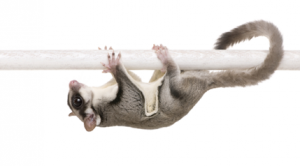 If you are interested in getting sugar gliders as pets, there are some things you need to take into consideration first. Although sugar gliders do make wonderful pets, they are definitely not the right pets for everyone.
If you are interested in getting sugar gliders as pets, there are some things you need to take into consideration first. Although sugar gliders do make wonderful pets, they are definitely not the right pets for everyone.
You must keep in mind that sugar gliders are exotic animals and have needs that are specific to their species. Contrary to what some people say, it is not true that sugar gliders can be cared for just like guinea pigs and hamsters. They need bigger cages and have much more specialized dietary needs.
Questions To ask Before Deciding To Get Sugar Gliders As Pets
1. Are sugar gliders legal where you live? First of all, before you think about anything else, you need to find out if it is legal for you to own sugar gliders where you live. You should check state and local laws, and also ask your landlord about the pet policy if you rent your home.
2. Can you commit to owning sugar gliders for up to 15 years? Sugar gliders can live for up to 15 years in captivity, so you need to ask yourself if you are in it for the long haul. A lot can change in your life in 15 years, so think about. It is very much like getting a dog in that you have to be willing to commit to owning this pet for quite a long time.
3. Would you be willing to have more than one glider? Sugar gliders do much better if they have at least one other glider companion. If you are only willing to get one glider, then you should think about getting a different pet. Having more than one glider will mean the difference between surviving and thriving, so it is much better to get a pair of gliders at a minimum.
4. Can you handle the cost? Having sugar gliders is not cheap. Beyond the initial cost of the gliders, you will have to purchase a cage, cage accessories, food, and veterinarian services. Just keep in mind that these things can add up.
5. Is there a veterinarian in your area who treats gliders? It can be difficult finding a veterinarian near you who has experience treating sugar gliders. It is wise to find one before you commit to getting sugar gliders as pets.
6. Are you willing to feed them a proper diet? Feeding sugar gliders is not as easy as feeding a dog or cat. You cannot just open up a bag of dry food and plop it in a bowl and be done. They need a nutritionally balanced diet of protein and fresh or frozen fruits and vegetables. You also need to make sure they get enough calcium. Educating yourself about their dietary needs is very important to keep your gliders healthy.
7. Are you willing to have a nocturnal pet? Sugar gliders are nocturnal, so they sleep during the day and are active at night. Think about whether or not this will work with your schedule. If you go to sleep pretty early and would not have time to interact with your gliders in the evening to feed them and give them play time outside their cage, then sugar gliders are not good pets for you.
8. Do you want a pet that can be messy and smelly? Sugar gliders definitely have a distinctive odor (some are smellier than others), and they mark their territory with urine. They also cannot be potty trained, so expect accidents.
9. Will it bother you if your sugar gliders are noisy at night? Sugar gliders bark and make all sorts of noises in their cages as they climb and jump around. If this would bother you at night, then sugar gliders are not the right pets for you.
10. Do you have other pets? It is a common misconception that sugar gliders can bond with your other household pets. This is not true. It is not a good idea to mix sugar gliders with dogs and cats. Sugar gliders are prey to cats and dogs, so it can be life threatening to let them interact. Sugar gliders are very small and vulnerable, and animals are unpredictable. Even if you have the most mild mannered dog, I’m betting it still likes to chase squirrels. A sugar glider is not going to look any different from a squirrel to your dog when it is running and climbing around the room.
I hope you will give these questions some serious thought before you decide to get sugar gliders as pets. All too often these wonderful animals end up abandoned because people get in over their heads and were not prepared for what it takes to keep an exotic animal.

Recent Comments